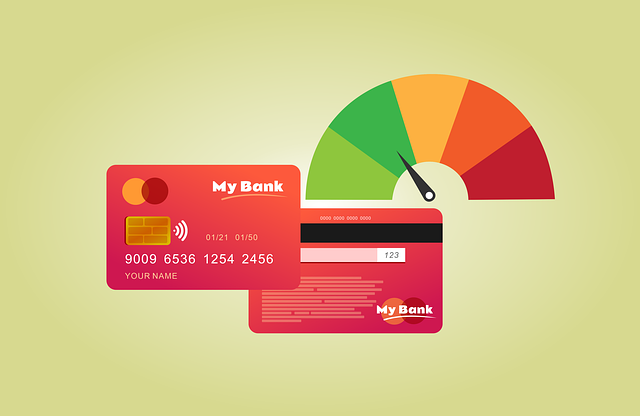

While today, you may be in great financial standing, all it takes is an accident, a medical condition, or any other misfortune, and you may find yourself in seemingly insurmountable debt as a result. If you find yourself in this unfortunate situation, you should know two things: first, understand that you are not alone. Millions of Americans have found themselves in this situation, and in many cases, it is simply not their fault. Second, you must understand that the sooner you reach out to our firm, the better off you will be. The Franklin County bankruptcy lawyers here at Cousino & Weinzimmer LLC have helped individuals throughout the state of Ohio develop strategies that can help them keep their homes, pay off their debts, and move on with their lives. Contact our firm to learn more about what we can do for you.
Determining whether bankruptcy is the right step for you depends on your financial situation and future goals. If you find yourself unable to pay your bills, facing foreclosure, experiencing wage garnishments, or being harassed by creditors, filing for bankruptcy may provide much-needed relief.
Chapter 7 bankruptcy is typically suited for individuals with overwhelming unsecured debts, such as medical bills or credit card debt, and little disposable income. Chapter 13 bankruptcy, on the other hand, is designed for individuals who have a steady income and want to repay their debts over time while protecting assets like a home or car. Consulting with a team of experienced bankruptcy lawyers can help you assess your financial situation and determine the best course of action.
Chapter 7 and Chapter 13 bankruptcy offer different solutions to financial difficulties, each with its own advantages and eligibility requirements.
Filing for bankruptcy offers several advantages to those struggling with overwhelming debt. Some of the key benefits include:
Immediate Relief from Creditor Harassment
One of the most immediate and noticeable benefits of filing for bankruptcy is the automatic stay, which goes into effect as soon as you file. This court-ordered protection halts all collection efforts from creditors, including phone calls, letters, lawsuits, wage garnishments, and repossessions. This allows you to breathe easier and focus on your financial recovery without constant harassment.
Elimination of Overwhelming Debt
Bankruptcy allows for the discharge of certain debts, meaning you are no longer legally obligated to repay them. Chapter 7 bankruptcy, in particular, can wipe out many types of unsecured debt, such as:
For those filing under Chapter 13, while some debts may not be entirely eliminated, the structured repayment plan can significantly reduce what you owe and make payments more manageable.
Protection from Foreclosure and Repossession
If you’re at risk of losing your home or vehicle due to missed payments, bankruptcy can provide a lifeline. Chapter 13 bankruptcy allows you to catch up on past-due mortgage or car loan payments through a structured repayment plan, often preventing foreclosure or repossession. In some cases, it may also enable you to modify loan terms, making payments more affordable.
Stopping Wage Garnishments and Bank Levies
If your wages are being garnished or your bank account is subject to levies due to unpaid debts, filing for bankruptcy immediately stops these actions. This means you regain full control of your income, allowing you to cover essential expenses such as rent, utilities, and food without fear of losing a portion of your paycheck to creditors.
A Fresh Financial Start
For many individuals, bankruptcy is the first step toward financial recovery. By eliminating burdensome debts, you can rebuild your finances and focus on a more stable future. Although bankruptcy does impact your credit score initially, many people find that they are able to start improving their credit within a year or two by practicing responsible financial habits.
Structured Debt Repayment Plan
For those who file for Chapter 13 bankruptcy, the court provides a structured repayment plan that spans three to five years. This plan consolidates your debts into a single, manageable monthly payment that is based on your income and expenses. The benefits of this plan include:
Elimination or Reduction of Certain Legal Judgments
Some court judgments related to unsecured debts can be discharged in bankruptcy, freeing you from the burden of lawsuits and wage garnishments associated with these judgments. Additionally, bankruptcy may allow for the discharge or restructuring of certain tax debts under specific circumstances.
Potential Reduction in Student Loan Debt
While student loans are generally not dischargeable in bankruptcy, in certain cases, if you can prove undue hardship, you may be able to have a portion of your student loan debt reduced or eliminated. This is a complex process, but an experienced team of bankruptcy lawyers can help assess whether you qualify.
Relief from Overwhelming Medical Debt
Medical bills are one of the leading causes of bankruptcy in the United States. If you have incurred significant medical debt due to an accident, illness, or emergency, bankruptcy can provide much-needed relief by eliminating or reducing these debts, allowing you to focus on recovery rather than financial stress.
The Ability to Rebuild Your Credit Over Time
Although filing for bankruptcy does impact your credit report, many people find that their credit begins to improve shortly after filing. By eliminating old debts, reducing your debt-to-income ratio, and adopting responsible financial habits (such as making timely payments and keeping credit balances low), you can work toward rebuilding your credit score more quickly than if you continued struggling with unmanageable debt.
While filing for bankruptcy does impact your credit score initially, it is not the end of your financial future. In fact, for many individuals, bankruptcy can be the first step toward rebuilding credit. Although a Chapter 7 bankruptcy remains on your credit report for up to 10 years and a Chapter 13 for up to 7 years, many people see an improvement in their credit scores within a year or two of filing.
This is because bankruptcy eliminates outstanding debts, reducing your debt-to-income ratio—a key factor in credit scoring. Additionally, responsible financial habits, such as making timely payments on remaining obligations, using secured credit cards, and keeping balances low, can help rebuild your credit faster. Over time, lenders will see that you are managing your finances more effectively, making it possible to qualify for credit cards, car loans, and even mortgages again.
Here at Cousino & Weinzimmer LLC, our skilled Franklin County bankruptcy lawyers understand that few things are more overwhelming than finding yourself drowning in debt. That said, we take great pride in guiding clients to a safe harbor via bankruptcy, and we stand ready to effectively guide you through the process, too. Contact our bankruptcy lawyers today to schedule a free initial consultation. We represent clients throughout Ohio, including in Franklin County, Montgomery County, Hamilton County, Dayton, Cincinnati, and beyond.
© 2025 Cousino & Weinzimmer LLC. All rights reserved. Attorney advertising.